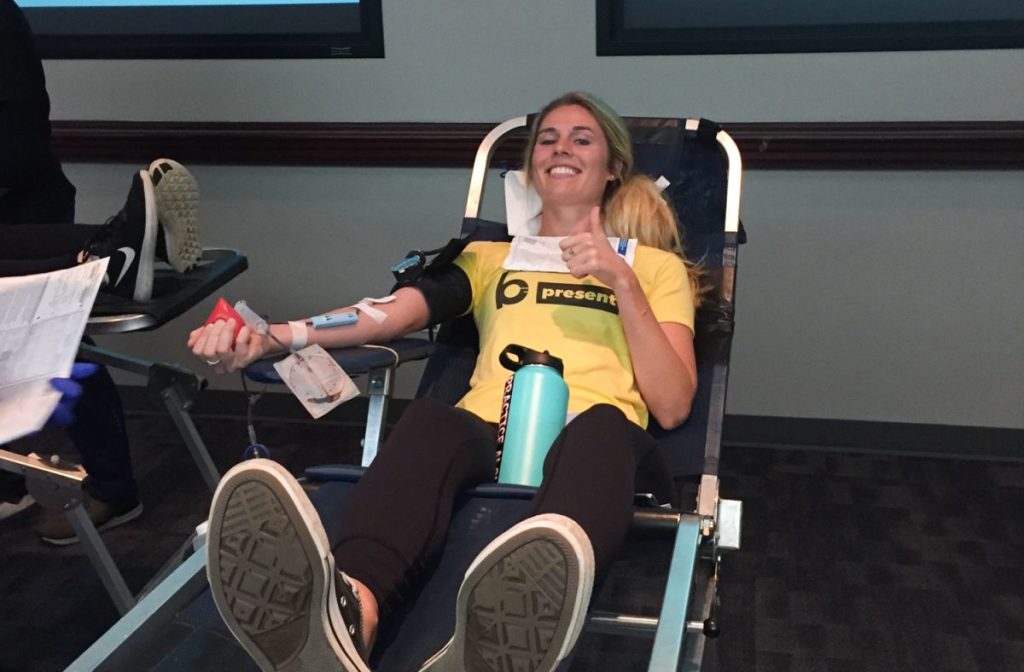
The Blood Crisis: What Every Young Adult Should Know
When you Google how to support a friend through cancer, you will find lots of ideas, from running errands to keeping them company through chemo to delivering meals to them. But this month, in honor of National Blood Donor Month, we wanted to bring awareness to a very important but often ignored way to support your friend with cancer and all cancer patients across the country: giving blood. blood crisis
Donor blood is a key asset in the fight against cancer
Cancer patients use more than ¼ of the nation’s blood supply, more than patients with any other disease, and yet only 3% of the US population donates blood according to the Red Cross. Cancer patients need blood for a whole host of reasons, from cancer in the bone marrow that crowds out normal blood cells to chemotherapy that causes anemia to surgery and bone marrow transplants.
Unfortunately, due to the ongoing COVID-19 pandemic, we are in the midst of the worst blood crisis we’ve seen in the past ten years. The Red Cross, which supplies 40% of the nation’s blood supply, says that they have less than one day’s worth of certain blood types. Since blood supply is so low, it has led to cancer patients being forced to wait until their counts hit dangerously low levels before they can get a blood transfusion. Moreover, less than 10% of the eligible population donates blood on an annual basis, so there was already room for improvement prior to this crisis. This is especially important for young adults. Currently, only 10% of blood donations come from people aged 23-29, and 12% come from people in their 30s despite young adults often being stronger and better candidates for blood donation, and young adults being the most common recipients of donor blood.
Many myths keep young adults from donating blood
One of the big ones is that you can’t give blood after getting a tattoo or piercing; this is false as long as you got your tattoo or piercing at a state-regulated facility, you can donate blood immediately! If it was at a non-regulated facility, you only need to wait a few months before donating. You can also give blood if you’re an alcohol, tobacco, or marijuana user! It is just advisable that you do not use these substances within a few hours before your donation. Many people also assume that you should not give blood if you have a chronic condition or are taking chronic medication. While some conditions and medications do prevent you from giving blood, the majority do not. Check your eligibility for giving blood here.
It’s clear that cancer patients urgently need more people to get out and give blood and to continue making recurring blood donations, especially our fellow adolescent and young adult friends. What better time to donate than National Blood Donor Month? While platelets, O+ and O- blood are in the highest demand, all blood is critically needed, and you can help save lives by giving whatever blood you can. If the cancer patient you’re supporting has a compatible blood type with yours, you can even do what’s called a Direct Donation, where you give blood specifically to be used by that person (though call the blood bank in advance as there may be specific requirements, processing fees, and the blood may go to waste if the patient isn’t able to use it in time). If you don’t have a compatible blood type with them, they will surely still appreciate that you gave blood to help other cancer patients, just as other selfless donors have done for them.
To find out more and schedule your appointment to give blood, check out blood drives through the Red Cross, or find your local blood bank through AABB (Association for the Advancement of Blood & Biotherapies) here.
Want more?
- Follow Chiara on Instagram
- Read Cancer Humor: Coping Through Laughter
- Follow us on Instagram
- Learn more about the b-present Foundation
